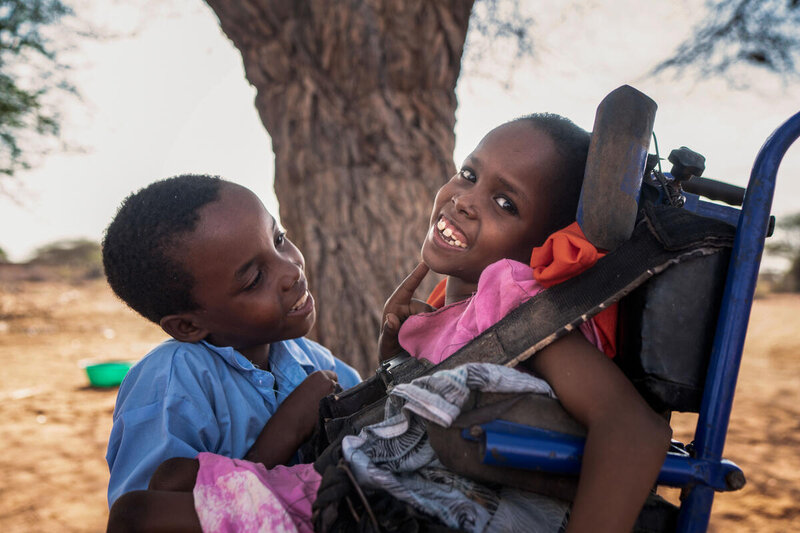Kenya: How cash grants empower people living with disabilities
Photo: WFP/Arete/ Fredrik Lerneryd
Ikran is eight years old. She lives with her family in Barwako, 3km from Wajir town, capital of one of Kenya’s poorest counties – the country is grappling with hunger caused by the severe drought in the Horn of Africa.
She receives a disability allowance that allows her mother, Halima, to buy her the foods that suit her needs best.


The disability cash transfer programme is a social protection intervention by the County Government of Wajir that is supported by the World Food Programme (WFP). It aims at boosting income security and improving the well-being of people with disabilities and their families.
Ikran, her twin brother, Hassan, and their seven siblings, live in 3.6 metre squared Somali hut known as an aqal.
Ikran is quadriplegic and Adan, her older brother, is also disabled. To support her children, and her retired husband too, Halima, makes and sells mandazi – a popular fried dough snack – in the school canteen. She also runs a small kiosk next to her hut.

Her days – a flurry of caregiving and income generation activities – start at 4 a.m. She checks up on Ikran and Adan, prepares breakfast, and the mandazi for sale, ahead of opening the kiosk.
“Before disability cash transfers, life was very stressful,” she says. “Feeding a large family of nine children, two of whom that need 24-hour care on a meagre income was very challenging”.

Ikran started receiving the cash transfers from 2015. But that stopped in 2017 when the lack of laws to back up the annual budget for the disability fund led to its suspension.
Recognizing the importance of this safety net, WFP with funding from the Government of Sweden, stepped in to support the Wajir County Government in drawing up the Persons Living with Disability Bill which was passed into law last September.

WFP provided both technical and financial support to the county, convening and facilitating the policy formulation process, and further supporting registration, selection of beneficiaries and post-payment monitoring of the cash transfers.
Under this new agreement, the cash transfers resumed in August last year, with an annual budget of US$123,350 (14 million shillings). Each of the 256 families currently enrolled in the programme receives US$35 every month.

“I used the money to buy mattresses and bedding for both Ikran and Adan,” says Halima. “I also bought some food items in bulk like rice, sugar, flour, cooking oil, maize, and beans.” Among the items that she buys for Ikran are disposable nappies. Before the cash transfers, Ikran would be forced to use old pieces of fabric that were unsuited to Ikran’s needs and caused her discomfort.
“WFP is happy to support county governments in strengthening policies for the benefit of those who are most vulnerable,” says Lynette Waititi, head of WFP’s Wajir office. “The Persons Living with Disability Act has enabled Wajir to allocate an additional 2 percent of its annual development budget to the Disability Fund.”

